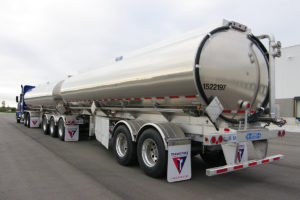Last June 15th, in front of the members of the Yukon Chamber of Commerce in Whitehorse, Bank of Canada Governor Stephen S. Poloz stated that the Canadian economy is making progress in adjusting to low oil prices and recovering from the global financial crisis. This review of the outlook took into consideration the impact of the wildfires in Alberta last spring that affected oil sands production in Fort McMurray.
« While the energy industry continues to struggle, there are signs of strength in non-energy exports, even though the data have been volatile in recent months », explained Governor Poloz. « The past depreciation of the Canadian dollar is supporting exports, including tourism. Several categories are encouraging as many export sectors are operating near their capacity limits, which augurs well for future investment and job creation. Canadian households are remaining resilient, particularly outside resource-producing areas. Low interest rates and a solid job market have helped sustain consumer spending. »
For its part, the Organisation for Economic Co-operation and Development (OCDE) projects Canadian economic growth to strengthen in 2016 and reach 2% in 2017. In its Economic Forecast Summary for June, 2016 the OCDE underlines that the contraction in the resource sector slows, activity in the rest of the economy is projected to gain traction and non-energy exports should continue to benefit from the earlier depreciation and strengthening export market growth.
Earlier this year, Steve Higgins, CEO of the North East of England Process Industry, wrote in The Chemical Engineer, a British magazine covering the chemical, biochemical and process engineering industries around the world: “The economic fallout clearly has a direct impact on the many countries that rely upon oil and gas as the major contributor for the well-being of their economy.” Does this mean that Russia, Venezuela, Colombia, Ecuador and Saudi Arabia are in trouble? Most probably so and you don’t have to go that far to see the effects of a slumping oil industry as right here in Canada, the entire country can feel the effects of what lower than ever oil prices have meant for the activities in oil fields in Alberta and Saskatchewan.
With more than 10 million tonnes per annum (mtpa) of ethylene, 6.5 mtpa of polyethylene, about 2.3 mtpa of propylene and about 6.67 mtpa of new methanol capacity expected to come on stream in North America by decade’s end, petrochemical producers are set to face more competition for both domestic and global market share. Controlling logistics and transportation costs and transit times will be key to North American petrochemical producers, especially to companies that will be exporting much of their production and need to offer very competitive prices and derivative export positions, amid a rising U.S. dollar, low oil and commodity prices, fluctuating profit margins and softening global economic growth.
Though feedstock and energy costs make up about 70% of producers’ operational expenses, it is logistics and infrastructure challenges along the supply chain that will present some of the biggest risks to regional and export development. The growth in production capacity will test: the North American rail infrastructure and packaging capacity; the road weight allowances; the supply of truckers, trucks, chassis and containers; and port capacity and operations, among others, particularly on the Gulf Coast. In this environment, companies’ marketing and distribution strategies will require more accurate demand and supply projections, price and export margin forecasting, careful costing of alternate logistics, and more flexible shipping options.
When the Canadian economy started its downward trend, many companies doing business here were caught off guard and have had trouble rebounding since. For Transcourt Tank Leasing, the Canadian leader in short and medium term rental and long term leasing of tank trailers of various configurations, the slumping economy simply accelerated its plan to reinforce its presence in Eastern Canada and start developing the United-States market. They have opened new locations in Montreal and Moncton bringing up their total to five in Canada and started its adventure south of the border by opening a regional office in Lansing, Illinois followed by pick–up locations in Pasadena & Houston in Texas and one more location in New Orleans coming soon.
Transcourt had been planning for many years to enter the U.S market and when the Canadian oil industry started to decline, the company decided the time was ripe to foray south of the border. The company’s success in Canada was based on its reputation of offering quality service and products and it is this recipe and Transcourt’s deep knowledge of the liquid and dry bulk transport industry that convinced American customers that the Canadian enterprise could be a great partner. Transcourt did not change its recipe when it started developing the U.S. market, it simply adapted it to American needs and set forth a marketing strategy to make its expertise better known.
Transcourt Tank Leasing was founded in 1997, specifically to meet the leasing and long-term rental needs of the liquid and dry bulk transport industry. Transcourt’s large fleet of tankers is available to customers across North America. A wide selection of tank trailer configurations is available to a variety of unique industry segments and includes new and used stainless chemical trailers, aluminum crude oil and petroleum tankers, pneumatic dry bulkers, aggregate crude oil and condensate tankers as well propane LPG units.
Other sources: U.S. Petroleum Supply Chain market outlook white paper.


Recent Comments